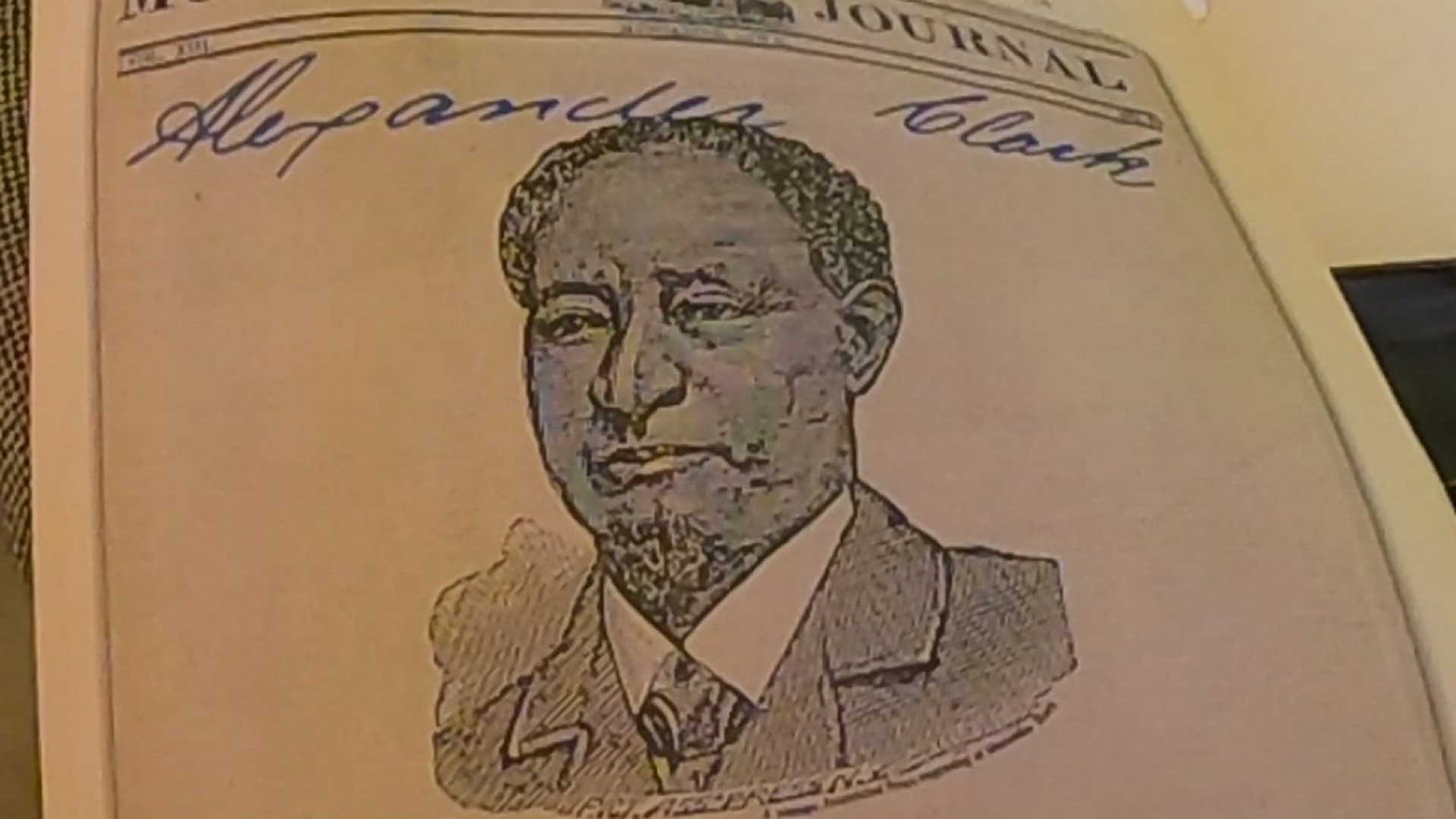MUSCATINE, Iowa — In May 1842, a 16-year-old named Alexander Clark settled in Muscatine, Iowa.
At the time, the city was known as Bloomington. It was here where he would make an impact in many ways, such as establishing the first African Methodist Episcopal Church in Iowa.
In 1863, he would volunteer to serve in the American Civil War but was barred due to a physical defect. This would lead him to recruit over a thousand men to serve in Iowa's first Black infantry.
In 1867, Clark sued the Muscatine School District after his 13-year-old daughter Susan was denied entry to a public school closer to their home. The Iowa Supreme Court would end up ruling in Clark's favor, giving Susan an opportunity to attend an all-white school years before the landmark Supreme Court case Brown v. Board of Education in 1954
Daniel Clark says Alexander was the important black man of the 19th century, but is puzzled on how his story gets lost throughout time.
"I've been doing research since 2005, and it's just bizarre to me," he said. "86 years before Brown v. Board of Education, we had Clark v. Muscatine Schools. It was here where the court said emphatically every student in Iowa, no matter the background, skin color, religion, they all have the same rights to public education."
After the lawsuit, Clark would graduate from the University of Iowa's law school. He was the second black student to do so, with his son being the first, Alexander Clark Jr.
The list of achievements Clark had throughout life is bigger than expected, which is why Daniel makes it his mission to share the lost information.
"I think the work we've put in over the years has got the attention of many," he said. "Some people realize that this Iowan was really important throughout history."
He's not the only person trying to keep Clark's story going. Kent Sissel currently owns the original home of Alexander Clark. He took it on as a project after graduating from college in 1979.
"I wouldn't describe myself as a historian," Sissel said."I foolishly thought I could take care of the home for a couple years. 45 years later, I am still here."
It's in his basement where he keeps documents on Clark and does research.
"He didn't intend to leave a legacy, he intended to do what was right in terms of equal rights and human rights" Sissel added. "You keep gathering these and eventually you've got hundreds of little pieces of information and then something will happen."
He wishes others would care about Clark's story as much as he does but believes lives are so busy that not many are interested in learning about the past.
As years go by, Clark's achievements become more recognizable. 151 years after fighting for his daughter's rights, a middle school was named after Susan. A book was also published for Susan as a way to recognize her bravery.
Daniel says it's the goal for him and for Sissel to keep the story of Clark alive.
"We're old white guys telling the story," Clark said. "We want young people and people of all skin colors to be involved in this."
Sissel says he hopes the home can become a national historic landmark by 2026. That year would also be Alexander Clark's 200th birthday.
In late 1890, President Benjamin Harrison appointed Alexander Clark as U.S. Minister to Liberia. Shortly after, he passed away at the age of 65 in Liberia.
Today he is buried at the Greenwood Cemetery in Muscatine, where you can find his gravestone.

